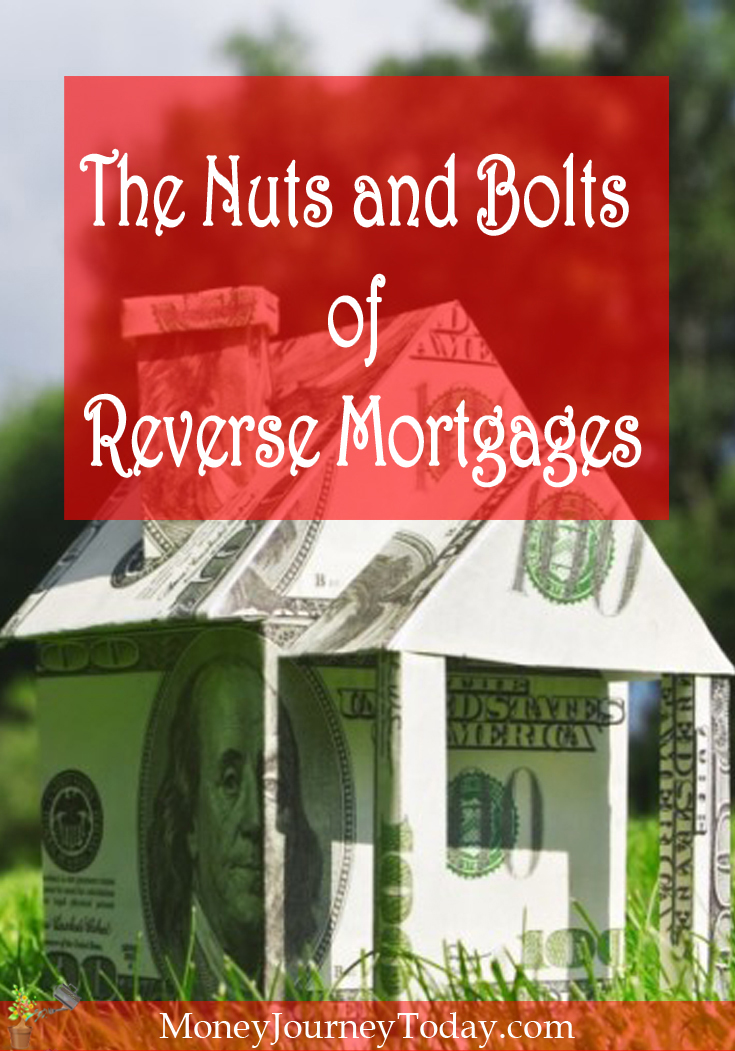Reverse mortgages are presented as useful financial tools that could help the elderly in times of financial crisis.
Why the elderly? Because you’d have to be at least 62 to qualify for a reverse mortgage loan.
This type of mortgage is designed to help retirees get back on their feet if income isn’t sufficient or to simply help them enjoy their golden years, if retirement savings weren’t a priority ‘back in the old days’.
If unplanned expenses come up, seniors can borrow against equity of their own homes. Provided they qualify to fund their retirement using their home as collateral.
The nuts and bolts of reverse mortgages

What is a reverse mortgage
With ‘classic’ mortgages, lenders check your credit history before lending you the money to buy your house.
Reverse mortgages work differently. You already own your home (or have few payments left on your ‘regular’ mortgage), so you can use it as collateral to borrow against your real estate asset.
You’ll still own your home even after shaking hands with the bank, provided you respect the reverse mortgage contract’s terms.
Among other conditions, this includes:
- continuing to live in your house
- having to pay your property taxes as usual
- continuing to pay for homeowners insurance
Reverse mortgages have a due date as well. No bank will ever lend you money without wanting it back, one way or another.
Unlike other loans or mortgages though, when you have to pay your loan back in monthly installments and have a deadline, a reverse mortgage is due only when the borrower passes away, moves or sells the property.
Of course, the loan can be paid back earlier on. It’s just not mandatory.
The lender can’t lose either way, and retirees can sleep well at night knowing they’re not pressed with time to pay back the money they borrowed.
Benefits of a reverse mortgage
No credit history or income are required to qualify for a reverse mortgage. Whether or not you have a great credit score doesn’t matter. Whether or not you have a regular income, doesn’t matter. What matters is that you own or are close to owning your house, so you can use it as collateral.
There are no monthly payments with reverse mortgages. If you want to pay back the money like this, you can do so, but it isn’t a requirement. Unlike other type of loans, you can simply enjoy your newfound stash of cash without worrying about due dates or penalty fees.
Have a roof over your head during retirement is a great advantage. As long as you remain the rightful owner of your home, you never have to worry about the bank coming after your property. And with the reverse mortgage money, you could literally live happily ever after. If needed, you could safely hire a long term caregiver while you still live at home and pay them with your newfound source of money.
You’ll never owe more than your home’s value, when the loan is due. If you decide to move or sell your home, paying back the loan won’t require you to match up your ‘balance’ if your home’s value counts for less. This is also advantageous for your heirs, should they choose to take back your house from the lenders.
Reverse mortgages provide tax free income for life, provided you respect the contract’s terms. The money you receive from your mortgage doesn’t count as income. As a (happy) consequence, this money won’t be taxed!
Downsides of reverse mortgages
Putting your children’s inheritance at risk is a possibility when applying for a reverse mortgage. While your heirs do have some time to reclaim the property, failing to do so implies the bank will take over. The good news is, if the home sells for more than you borrowed, the excess money goes to your heirs. The bad news is, that rarely happens and either way, they won’t inherit an already-paid-for home!
Failing to pay your taxes and insurance means you risk losing your home. Since you’re still the owner, you need to continue paying for homeowners insurance and property taxes. If you can’t afford to make these payments, your reverse mortgage could become due. You’d be forced to either pay back the money or become homeless.
Spending a lot on interest and reverse mortgage fees is a huge downside, considering you worked hard all your life to become the owner of your home. A reverse mortgage is still a type of loan, clearly fees and interest rates aren’t out of the question. So if you worked your behind off to pay a mortgage in 30 years, you’ll now benefit from less than 70% of your home’s actual value!
You might get cut off from local assistance, if you receive it. Certain public benefits aren’t affected, like your Social Security. However, suddenly having cash available might mean you’ll no longer qualify to receive local or other types of assistance.
Not all lenders are there to help, if you get the drift. Shopping around for the best rates is always a good idea. You never know which lenders can take advantage of your vulnerable position and offer you less than convenient terms on your reverse mortgage. Once you sign a contract, there’s nothing you can do about it but accept the consequences.
Long story short
Reverse mortgages come with ups and downs. Like any other financial product, for that matter.
If you don’t plan on spending the rest of your golden years in your own home, reverse mortgages aren’t a good option.
On the other hand, if you don’t have big plans for retirement or anyone to leave your house to (or don’t want to, it happens!), a reverse mortgage might be a good way to fund your senior years.
For many, a reverse mortgage is the perfect way to have a peaceful retirement, without worrying about debt or money problems.
It’s not for everyone though.
Before planning on borrowing against your real estate asset, make sure you take into account all alternatives and don’t make a rushed and uninformed decision!
Have you ever thought about reverse mortgages as a way to fund your retirement?

Reverse mortgage helps seniors with loan on their home equity while they can live in their home as long they are alive. When they die, heirs would pay back loan with interest rates and closing fee to get home ownership or company can sell it to someone else.